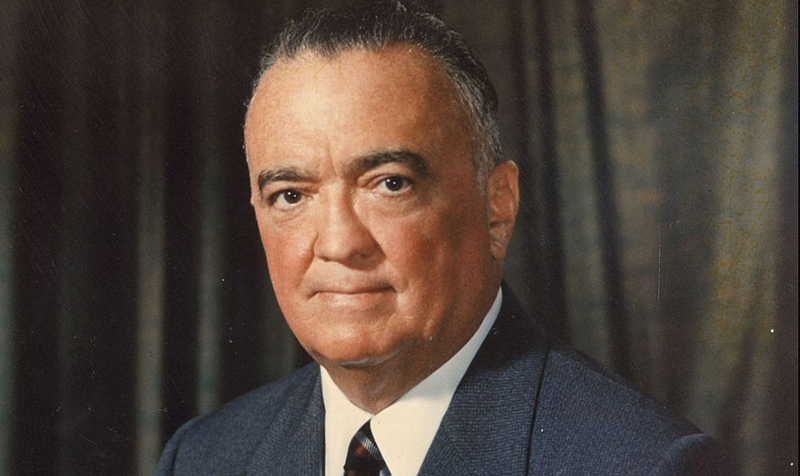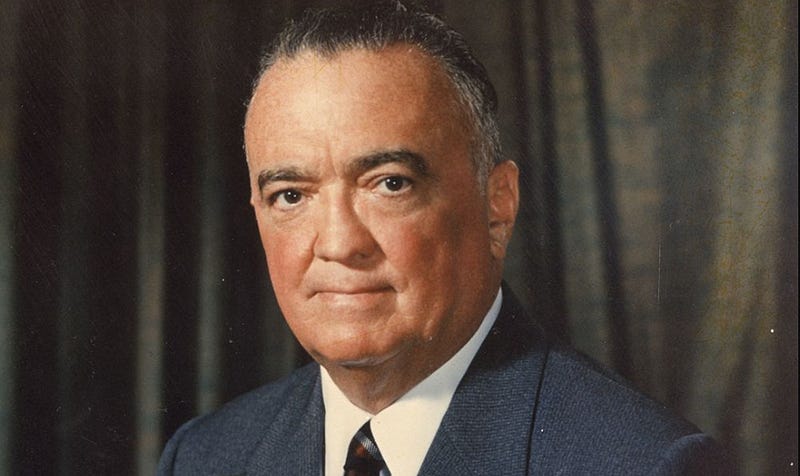How Anti-Black Groups Are Using ‘Paranoid Schizophrenic’ as the New N-word and Where it Came From
“Throughout history, anti-Black actors of persecution have used the phrase ‘paranoid schizophrenic’ to discredit the testimony of Blacks. Now, its becoming the new n-word. In my opinion, this falls within the parameters of hate speech,” says Quianna Canada
Mental health conditions and terminology have long been used by the dominant society to discredit the testimony of Black Americans. During the TransAtlantic Slave Trade, enslaved Africans who fled their captivity and complained about their ill-treatment and persecution were discredited by American physician Samuel A. Cartwright.
Cartwright asserted that the motivation behind the escape of enslaved Africans wasn’t rooted in mistreatment but rather attributed it to a supposed diagnostic condition termed drapetomania, a concept exclusively ascribed to enslaved Africans.
From Drapetomania to Schizophrenia
In the 1950s, a perfectly well Black man named Arrington High, who was an organizer, advocate for integration and a journalist, was declared insane and institutionalized in the Mississippi State Hospital for the Insane because he protested “the Mississippi order of thing’s” (See Isabel Wilkerson, The Warmth of Other Suns, at pp. 351–52 (2010)). According to High, his confinement resulted from the fact that any African American in Mississippi who “will not be cowed by cross burning, frequent jailings, floggings and threats must be insane.”
In Nadia Monique Richardson’s review of The protest psychosis: How Schizophrenia became a Black disease, she explained that between the 1940s and 1970s, four Black male residents and one White female resident was committed to the Ionia State Hospital. Richardson’s research uncovered a pattern of biased language used by physicians when diagnosing Black residents, juxtaposed with a notably more empathetic approach toward the White female. For instance, Richardson illustrates how terms like violent, aggression, paranoia, and arrogance were selectively applied to describe Black male residents. These labels resulted in physicians unfairly diagnosing Black men as ‘paranoid schizophrenic,’ even when they did not suffer from the illness.
How US Federal Agencies Used Schizophrenia to Discredit Black Civil Rights Leaders
It cannot be denied that mental health conditions like schizophrenia have been used throughout history to undermine the testimony and experiences of Black Americans. Indeed, Jonathan M. Metzl asserted in his interview with Felicia Pride that the Federal Bureau of Investigations (FBI) had diagnosed civil rights leaders such Malcolm X and Robert Williams with schizophrenia, even when they did not suffer from the illness. The FBI further alleged that their activism and pursuit of change constituted an intent to overthrow the Government.
Building on the United States Government’s persecution of civil rights leaders, both Malcolm X and Robert Williams have made similar claims of the nation weaponising systemic racism, akin to the historical case of drapetomania, not only to undermine their constitutionally protected rights but also to induce psychosis. These statements are supported by Chester M. Pierce, a Black professor at Harvard, who challenged the use of schizophrenia against Black Americans, stating being “Black in the United States means to live closely with despair and hopelessness, to feel insecure all the time, and in consequence, to become ‘psychologically terrorized.’”
How US Federal Agencies Attempted to Use Psychiatry to Discredit A Black Whistle-Blower
In Phillip Scott’s interview of Abraham Bolden, “Abraham Bolden Speaks On Being The First Black U.S. Secret Service Agent,” we learn he was assigned to the Presidential Protective Division and appointed by John F. Kennedy in 1961.
Bolden faced termination from the Secret Service when the United States Government falsely accused him of accepting a bribe in connection to a counterfeiting case. Subsequently, a jury convicted Bolden, sentencing him to six years in prison. In Scott’s interview, Bolden asserts US authorities removed him from the general population and marched him over to the psychiatric ward without reason. There, they attempted to coerce him into taking psychotropic medications. Bolden believes US authorities did this for the following reason:
“They had to try to put me in a position, where from that time forward, that whatever I might say would be discredited. And, the only way they could do that would be to do something with my mind — either to drive me insane, declare me insane — because they didn’t want to kill me. That would have been too obvious.” — Abraham Bolden
Mr. Bolden further said:
“They had in store for me to declare me insane and muddy up my name, so once that I was released, their defence of anything I would say would be ‘Oh, he was declared insane, you can’t believe anything this guy says.’”
Factual Accounts of the Dominant Society’s Continued Weaponisation of the Diagnostic and Statistical Manual of Mental Disorders
Today, the dominant society continues to wield the Diagnostic and Statistical Manual of Mental Disorders as a weapon against Black Americans.
Linda Stephens
In early 2023, Florida police officers committed Linda Stephens, a Black community activist to a psychiatric holding facility after she made a complaint to a bank about missing funds from her account. The officers then falsely alleged Stephens wanted to end her life to discredit her testimony.
Chandler Jones
Chandler Jones also made a revelation that sent shockwaves across the fields of the NFL. He asserts the Raiders owners shielded the perpetrators who violated his god-daughter’s bodily integrity. Nearly a week after Jones made this statement, NFL officials had him committed to a mental health institution, which Jones asserts, was against his own volition.
Kanye West (Ye)
During the same year, Eve Buckland and George Stark wrote that Kanye West claimed that Harley Pasternak was to blame for his bipolar diagnosis. This claim is supported by the testimony of Candace Owens, who asserts in Why Does Everyone Think I Am Going To Be Killed? that Pasternak threatened to have the rapper and fashion designer institutionalised. To substantiate this claim, Owens uploaded a text message from Pasternak to West, which stated the following:
“I’m going to help you one of a couple of ways: First, you and I sit down and have a loving and open conversation. But you don’t use cuss words and everything that is discussed is based in fact and not some crazy stuff that dumb friend of yours told you — or you saw in a tweet. Second option, I have you institutionalized again where they medicate the crap out of you and you go back to Zombie Land forever. Play date with the kids just won’t be the same.”
While the term “paranoid schizophrenic” isn’t explicitly mentioned in the three aforementioned accounts, it’s evident how the utilisation of the Diagnostic and Statistical Manual of Mental Disorders is being weaponised against Black Americans. This not only serves to undermine the credibility of Black Americans as epistemic subjects, but to also impose a sense of contempt upon them.
How Term ‘Paranoid Schizophrenic’ is Swiftly Emerging as the New N-Word
Professor of Law at Harvard University, Mr. Randall L. Kennedy, wrote in his article, A Note on the Word “Nigger,” that Hosea Easton found the n-word to be “an opprobrious term, employed to impose contempt upon [Blacks] as an inferior race. The term itself would be perfectly harmless were it used only to distinguish one class from another; but it is not used with that intent…it flows from the fountain of purpose to injure.”
The cases of Stephens, Jones, and West exemplify how terms such as “insane” and “crazy” are similarly employed: to denigrate Black Americans and diminish the validity of their testimony compared to that of their White counterparts.
Why Referring to a Black American Who Hasn’t Been Diagnosed With Paranoid Schizophrenia May Likely Constitute Malicious Discrimination if Not a Hate Crime
Organization for Security and Co-operation in Europe defines hate crimes as criminal acts committed with a bias motive. The factor that turns an ordinary crime into a hate crime is the perpetrator’s selection of victims based on a bias or prejudice on which they belong.
One may ask: What if a Black American is attacked under the mistaken belief that they are suffering from symptoms of schizophrenia? Can the offender be prosecuted for committing an anti-racial hate crime? I would argue yes. Given the dominant society has historically exploited schizophrenia to subjugate, denigrate and oppress Black Americans. Thus, the perpetuation of the misguided stereotype that Black Americans who complain about their ill-treatment are “paranoid,” “overthinking,” or “unreasonably suspicious,” would clearly constitute malicious discrimination, if not a hate crime.
For instance, when a public official, institution, NGO or group of people operate from a biased assumption that Black Americans have a “mental health condition” without any actual diagnosis, and then employ this assumption to humiliate or degrade the victim, diminish their dignity, or instil feelings of fear, anguish, or inferiority in them, it may well constitute “degrading treatment” under Article 3.
This is because the degrading treatment that Black Americans are being subjected to is based on a perceived disability. In other words, the Black American does not actually have schizophrenia meeting the definition under the Equality Act or American with Disabilities Act, but the discriminator perceives the Black American as having a disability. The discriminator then uses the perceived disability to humiliate or degrade the Black American, diminishing their dignity or testimony, while instilling feelings of fear, anguish, or inferiority in them.
In Chief Constable of Norfolk v. Coffey, the Court said the issue is whether the alleged discriminator believed that all the elements in the statutory definition of disability were present. It does not matter whether the alleged discriminator was familiar with the definition of disability. On this account, it may also constitute “discrimination on the basis of disability” as outlined in Article 2 of the Convention on the Rights of Persons with Disabilities.
In Zsolt Bujdosó v. Hungary, Communication №4/2011, the Committee on the Rights of Persons with Disabilities, held when a State Party deprives a complainant of a protected right “based on a perceived or actual intellectual disability,” it fails to comply with its obligations under Article 29 of the Convention, read alone and in conjunction with Article 12 of the Convention.
The term “paranoid schizophrenic” is increasingly being recognised as a racial slur to attack Black Americans. Given the historical backdrop of the United States Government utilizing “paranoid” and “schizophrenia” to marginalise and undermine Black American civil rights figures, activists, whistle-blowers and human rights defenders, any suggestion for Black Americans to seek mental health support in response to their experiences of racism, whether from an institution, organization, or group — domestically or internationally — may constitute discriminatory behaviour. Such actions could reasonably be interpreted as hate crimes.






